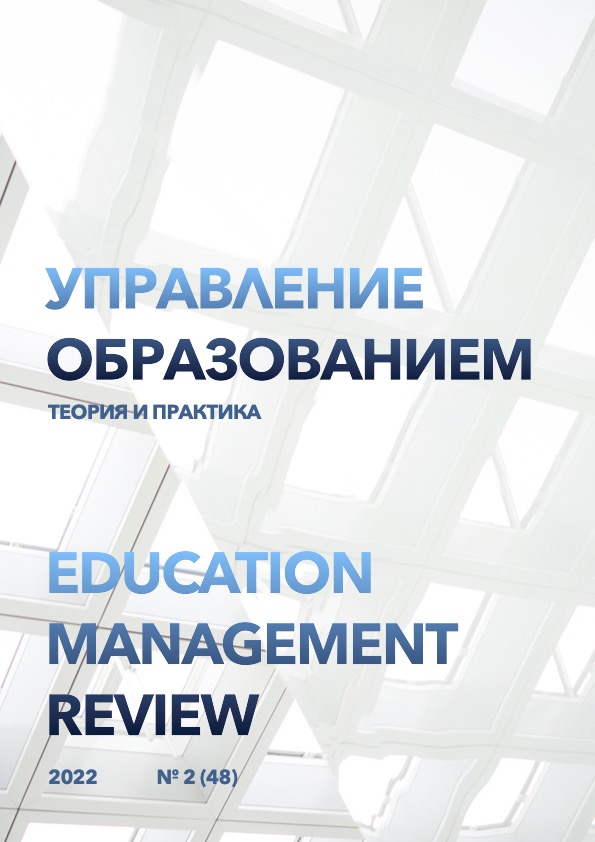Features of training applicants for economic education in digital entrepreneurship at an innovative university
DOI:
https://doi.org/10.25726/b6411-7122-6954-bKeywords:
innovative education, economics, training, digital entrepreneurshipAbstract
The city economy, where the profile knowledge of the city economy program is indicated and the skills and competencies in the field of ICT that the applicant must master are identified, among which Grid technologies, Gis technologies in the analysis of urban development, Big Data in urban development, graphical modeling and visualization of spatial urban development are indicated. It is proposed that in the course of obtaining economic education from digital entrepreneurship, the teaching staff conduct business trainings and webinars on the following topics: “Innovative methods of teaching digital entrepreneurship in higher education in a new virtual reality”, “Educational and scientific priorities of teaching digital entrepreneurship in the modern information society”, “Innovations in the digital educational space of post-industrial countries in the modernrealities of the information space”, “Digitalization of the Institute of Higher Education in Russia and the world in the conditions of innovatization and glocalization”. Today, among the key tasks that lie in the plane of solving through the use of methodological recommendations for teaching digital entrepreneurship is the creation of the
latest educational digital products, business practices, information resources for digital entrepreneurship; the development of a new quality of digital educational resources from digital entrepreneurship, taking into account the peculiarities of the styles of perception of the material and the level of economic development, transformation, modernization and adaptation of entrepreneurship in the languages of strengthening innovative glocalization.
References
Абдыров Т.Ш., Тулеев Р.Д. Проблемы экономического образования в вузах о внедрении компетентностного подхода в экономическом образовании // Экономика. Управление. Образование. 2015. № 1. С. 27-37.
Балашова М.А. Интеллектуальный капитал: сущность, способы измерения, критика источник // Baikal Research Journal. 2014. № 1. С. 22-22.
Евплова Е.В., Корнеев Д.Н., Федосеев А.В., Мурыгина Л.С., Борисенко Я.М. Проблемы и перспективы экономического образования в России // Азимут научных исследований: педагогика и психология. 2018. Т. 7. № 4 (25). С. 101-104.
Казакова Н.А., Наседкина Т.И. О перспективных направлениях в экономическом образовании // Дизайн и технологии. 2010. № 18 (60). С. 73-79.
Красноярова О.В. Новые медиаплатформы: принципы функционирования и классификация // Вопросы теории и практики журналистики. 2016. Т. 5, № 1. С. 45-57. DOI: 10.17150/2308- 6203.2016.5(1).45-57.
Лаврушин О.И. К вопросу о модернизации финансово-экономического образования // Деньги и кредит. 2011. № 3. С. 14-18.
Могилев А.В. Общее экономическое образование для инновационной экономики // Народное образование. 2010. № 10 (1403). С. 207-210.
Озерникова Т.Г., Бутакова Т.А. Качество образования - приоритет развития университета// Известия Иркутской государственной экономической академии. 2015. Т. 25. № 2. С. 196-205.
Озерникова Т.Г., Пензина О.Н. О применении профессиональных стандартов при проектировании образовательных программ в вузе // Baikal Research Journal. 2018. Т. 9. № 1. DOI: 10.17150/2411-6262.2018.9(1).11.
Санникова И.Н. Университет - центр непрерывной системы образования (на примере экономического образования) // Интеграция образования. 2006. № 2 (43). С. 153-160.
Сергеева М.Г. Непрерывное экономическое образование в условиях паритетности образования и экономики в обновляющейся России // ЭТАП: экономическая теория, анализ, практика. 2011. № 5. С. 117-126.
Соколинский В.М., Соколинская Т.В. Экономическое образование в век информации: некоторые аспекты // В сборнике: Организационные структуры «экономики знаний» Сб. науч. тр. Сер. «Методологические проблемы развития науки и техники» Центр науч.-информ. исслед. по науке, образованию и технологиям; Отв. ред. Пястолов С.М., М., 2010. С. 134-145.
Сундеева Л.А., Осадчикова Е.В. Влияние профессионального стандарта на процесс обучения бакалавров экономического направления // Азимут научных исследований: педагогика и психология. 2017. Т. 6. № 2 (19). С. 144-146.
Суходолов А.П., Майдачевский Д.Я. Экономическое образование России и региона: ответ на модернизационные вызовы середины ХХ века // Известия Байкальского государственного университета. 2017. Т. 27. № 2. С. 123-130.




